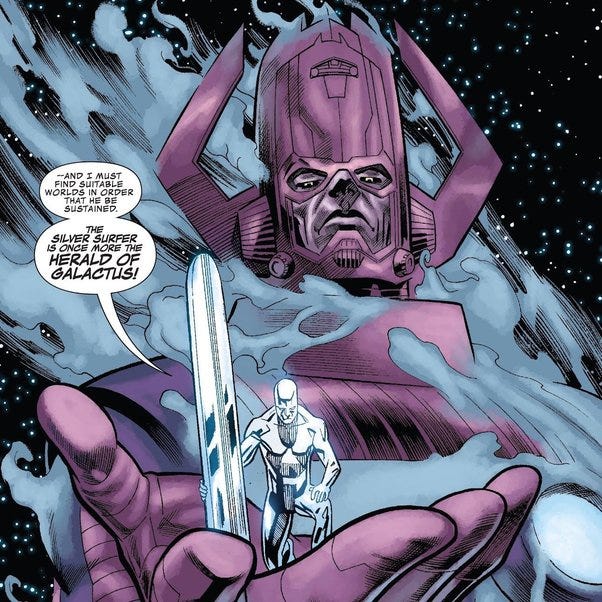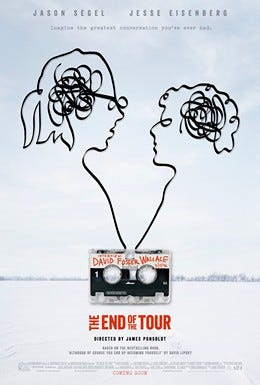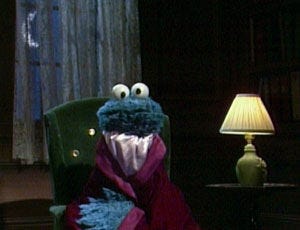On Not Reading Jonathan Franzen
Nobody's best-of list
It is a joy to be hidden and a disaster not to be found.
—D.W. Winnicott
It’s that time of year when all the interesting discourse and book chat I absorb intravenously on the daily is abruptly supplanted by a million best-of lists: the best books, the best movies, the best songs of 2024, etcetera, etcetera, world without end, amen. I find such lists boring at best and hateful at worst; why should we be confined to this particular annus miserabilis in our range of cultural consumption? In that spirit of resentful ennui, I offer the following: not a list, exactly, but an account of what I haven’t read. Not this year, but in my life. Ahem:
I have not read The Corrections, or any other Jonathan Franzen novel. I haven’t read David Foster Wallace’s Infinite Jest, nor Don DeLillo’s White Noise or Underworld. I’ve never read any Jonathan Safran Foer. I’ve read some minor Ian McEwan (On Chesil Beach) but not Atonement or any of the other big books. I’ve never read any Julian Barnes. I read Zadie Smith’s White Teeth (great) and Swing Time (tedious) but none of her other fiction. I haven’t read Jeffrey Eugenides’ Middlesex, though I think I read The Marriage Plot. I haven’t read any Sally Rooney. I’m perpetually halfway through Jennifer Egan’s A Visit from the Goon Squad. I haven’t read any David Mitchell. Chances are, if it’s a novel that’s been on the bestseller list in the past couple decades, I haven’t read it.
Isn’t this odd? I’m what they used to call a voracious reader, the last of the old-time devourers of worlds. I plow through a book a week, sometimes two or three; over the holiday I finished Stuart M. Ross’s scabrously funny new novel The Hotel Egypt, devoured all of Paul Theroux’s delightful The Kingdom by the Sea: A Journey Around the Coast of Great Britain, and got most of the way through C.S. Forester’s Hornblower and the Hotspur (having read Patrick O’Brian first, Forester’s rather clammy hero Hornblower comes across as a strange, solitary mixture of Jack Aubrey’s audacity and Stephen Maturin’s melancholy). Yet somehow I’ve gotten through the last thirty years without reading many of the “big” novels of my time, the big swinging dicks (and they are mostly men and mostly white men) of the literary world. Why?
The End of the Tour is a 2015 movie about David Foster Wallace; specifically, about Wallace as seen through the eyes of another writer, David Lipsky, who conducted a marathon interview with Wallace in 1996, much of which translates into word-for-word dialogue in the film. Lipsky is played by Jesse Eisenberg with his usual anti-charismatic intensity: he is the go-to actor for performances of Jewish, nominally liberal beta-male grievance.1 We see Lipsky subjected to a series of all-too-relatable writerly humiliations: after reading from his rather boring-sounding autobiographical first novel to a smattering of people at what’s probably a Borders in midtown Manhattan, we see him seething quietly at a nightclub where all anyone can talk about is the new thousand-page novel by some goyische tennis player from the Midwest. (It’s not just anyone, actually—in the film, which mostly marginalizes women, it’s a circle of attractive young women talking up Wallace, heaping insult to injury on Lipsky: “The guy’s been fucking canonized,” they proclaim.)2
Soon he’s pacing around his New York apartment reading rave reviews of Infinite Jest out loud to his long-suffering girlfriend Sarah (Anna Chlumsky), who finally challenges him to read it: “Maybe it really is that good.” There follows a brief scene of the two of them in bed with the two big books of the mid-nineties, she with Primary Colors and he with Infinite Jest. “Shit,” David murmurs, in reluctant tribute to the power of Wallace’s prose. Jealousy! Rivalry! Dick-measuring! These are powerful engines of achievement in any field, whether it be sports or literature. Lipsky will never rival DFW, and he knows it; he earns at best a kind of footnote in Wallaceiana by interviewing the Great Man at his home in wintry Illinois. Wallace is played by Jason Segel, which was controversial at the time, but I think he does a pretty good job of portraying Wallace as he probably was: a serious pro who managed to combine neurosis and ambition into a combustible mixture that made him the voice of Generation X, even if he was technically too old for the part. (Wallace, I mean, not Segel.) The DFW in the movie is something of a secular saint, and Lipsky’s time with him seems to temper the rough edges of his own frustrated ambition.
Toward the end of the film we see an older and wiser Lipsky (his Jew-fro notably diminished) reading his memoir Although of Course You End Up Becoming Yourself: A Road Trip with David Foster Wallace to a much larger and more appreciative audience than he could ever achieve with his own fiction. “We are both so young. He wants something better than he has; I want precisely what he has already. Neither of us knows where our lives are going to go. It smells like chewing tobacco, soda, and smoke. The conversation is the best one I ever had.” Lipsky has found his place in the world as a reader rather than as a writer. Not a genius non-survivor, but a survivor warmed by genius’ glow.
I’ve never wanted to be any sort of Jesse Eisenberg character. But.
The first writer I ever felt myself to be in competition with was F. Scott Fitzgerald, who published his first novel when he was 24. In college and afterward, I kept one eye on that magic number as I hacked spasmodically at a semi-autobiographical novel I called Mercutio on the Lam (I still kind of like the title). In the Nineties it was still possible to believe that such a novel could make its author rich and famous, or at least make his name. I was running in the same lane as someone like J.S. Foer: young, Jewish-ish, word-drunk, Holocaust-haunted. But the book proved unfinishable, at least by me, and my twenty-fourth birthday came and went without any tangible evidence of my genius to share with the world. It did not occur to me to try and write short stories, the usual apprenticeship for fiction writers. I applied to MFA programs in fiction and was rejected by all of them except I think NYU, where I was wait-listed. I was devastated. My self-belief was in tatters; I was working shitty jobs and in a cold war with my then-girlfriend, who was openly contemptuous of my writerly ambitions. I tried to join the Marines to get away from her, but that gambit failed. I moved to Montana with the girlfriend, broke up with her, and started writing poetry again. And this time the universe responded; I published in little magazines, gave a few readings, was accepted to most of the MFA programs to which I applied, and started on the academic path which led to my present comfortable circumstances. Poetry gave me what it seemed fiction could not: a place in the world.
Still, a part of me remained bitter over my failure to become the novelist I’d dreamed of being since I was ten. Never mind that my model, Fitzgerald, had been destroyed by his experience of fame, and was dead of alcoholic exhaustion by the age of 44. We probably can’t blame DFW’s success for his own early death, yet inevitably it becomes part of his legend: the light that burns twice as bright, etcetera. Besides, the other white male literary giants who loomed over the Nineties and Aughts are still very much with us; DeLillo is in his late eighties but still turning out elliptical masterpieces of late style, and Franzen—well, Franzen recently turned over his archives to another younger writer to explain how he came to write The Corrections and so turned himself, effectively, from a Lipsky into a Wallace. Which is a mixed metaphor at best, since Franzen and Wallace were friends, and Wallace’s feedback on The Corrections seems to have been helpful if not instrumental to Franzen.
The only Franzen I’ve read is Franzen the essayist (this is true of DFW as well);3 his 2002 take-down of William Gaddis, “Mr. Difficult,” irritated the shit out of me when I first read it. I was at the time a devoted partisan of difficulty in writing; I had begun a PhD program with the explicit wish to devote years to reading impossibly difficult long poems like The Cantos, The Maximus Poems, and “A”. When I read fiction, it was of the modernist variety, the thornier the better; I spent a few years in a Finnegans Wake reading group, in which we devoted our weekly meetings to at most a page of Joyce’s monsterpiece. I was unable to recognize at the time the voice of the spurned lover in Franzen’s complaint against the famously difficult Gaddis, the most rebarbative of the great “systems novelists” with whom Franzen, it’s clear, felt himself in competition (DeLillo again is one of them, along with Thomas Pynchon; some might include Roberto Bolaño and Wallace in their ranks; Neal Stephenson also deserves a shout-out). What I did know was that The Corrections was a monstrous bestseller, a book that even my unliterary relatives had read or at least read about, and that it purported to be a work of old-fashioned Realism with a capital R, vaguely tarred in my mind with the same conservative brush as Tom Wolfe’s fiction. No thanks. Didn’t read it, didn’t want to read it. Until now.
“How Jonathan Franzen Learned to Write a Franzen Novel” is part of a new series published by Vulture called “The Work of Art,” going behind the curtain to look at the creation of various artworks. In this case the artwork in question is The Corrections; Adam Moss, the piece’s author, interviews Franzen while poring over the boxes of manuscript and notes that went into the novel’s creation. This is the novel that turned a struggling mid-list author into “Jonathan Franzen,” the “self-flogging” man who winced his way through the Oprah-powered publicity machine that made him a millionaire several times over. Fuck that guy, right? Only he’s very human here, articulating an insight that it took me a staggeringly long time to develop for myself—and it’s actually right there in the title of Lipsky’s memoir: of course you end up becoming yourself. That is, it is possible to write, to want to be a writer, behind a kind of screen, without actually writing a word that comes from you.
The Franzen piece is technical, on the one hand, revolving around his struggle to write a DeLillo-esque novel centered on a protagonist with the Pynchonesque name of Andy Aberrant. After much struggle, he abandoned Aberrant for the five members of the Lambert family that the published novel is actually about. Like I said, I haven’t read it, but these characters are apparently much beloved, and the creation of lovable characters seems to have been a left turn for Franzen, who also found himself moving away from the paranoid affect of the systems novel toward something more like Dickensesque comedy. (I AM going to finally read the thing over the winter break, so we’ll see how right or wrong I am about “Dickensesque.”)
What moves me is that act of abandonment, or leap of faith: a heroically scaled version of the old creative writing saw that you must murder your darlings. Kafka said a book should be an axe to break up the frozen sea within us; this can also be true of a book we oourselves are trying to write. Franzen thrust aside what he knew how to do in favor of what he couldn’t yet do, and pulled it off. The proof of that particular pudding can be found not only in The Corrections’ success but in the awed, nit-picky, and rivalrous response of Franzen’s buddy David Foster Wallace to the manuscript, all of which appears as an appendix to Moss’s article. Also, I was thrilled by Franzen’s discovery of the structure of the novel as five novellas, one for each Lambert; this is the kind of lateral thinking that helps turn loose baggy monsters into something someone might actually read. It’s helpful for my own stalled novel about Barney Ross and Jack Ruby; I may do something similar, or I may just take comfort from that tiger’s leap, that Alexandrian stroke of the sword.
To thine own self be true—so saith Polonius, a sly prevaricating busybody who is nonetheless completely right. It is a far harder command to follow than it appears. For a long time, I chose not to be true to my own story—I let myself be fascinated by the pure play of language, by poses and attitudes and voices, and when I did tell the truth, I told it slant. D.W. Winnicott tells us that it is a joy to be hidden and a disaster not to be found. This might be the poet’s creed; nowadays, it is even the novelist’s creed. Reading has vanished from the public sphere; writing has become covert, even when it happens right in front of you, like this writing does. Yet if writing only serves as concealment, as a mask or brand or parasocial object for others to glom onto, what good is it?
Maybe I was afraid of competing with the big boys; maybe I found that very paradigm disgusting. Or maybe I just wasn’t yet ready to write from my core. I know now to honor that in others’ work, and when it manifests, my own. My admiration for those who can be their fullest selves on the page—their most dyspeptic, their most outrageous, their most chilling, even at times their most sentimental—knows no bounds. My personal “best-of” list must remain personal, wry, untimely. And so I will declare Jonathan Franzen’s The Corrections to be the best book of 2024, even though I haven’t read it yet and probably won’t get to it before the new year.
He’s at it again in his new film, A Real Pain, which I saw last week. Eisenberg wrote, directed, and stars as one of two frenemy cousins who journey to Poland to see where their recently deceased grandmother, a Holocaust survivor, lived and suffered. Eisenberg cannily allows his neurotic, anxious, rule-following character to be overshadowed by the other cousin, played by Kieran Culkin in his signature manic pixie fuck-up mode. The movie was just okay, but I was impressed by Eisenberg’s canny use of his own anti-charismatic persona.
I will not here engage the marginalization of women in the story of DFW’s life and the well-documented accusations of misogynistic abuse brought against him, except to say that masculinity and dick-measuring play some a big role in the writerly dynamic I’m trying to understand. So maybe I am engaging it after all.
I have actually read a fair bit of DeLillo, just not his most canonical novels; his book about Lee Harvey Oswald, Libra, looms ominously over my own ongoing attempts to write a novel about Jack Ruby.






"(his Jew-fro notably diminished)" is reminding me of the son's mustache like his dad in the other movie.
I love the idea of people discussing what they haven't read rather than what they have, it seems more informative - akin to asking people their least favorite Beatles song (mine is, Here There and Everywhere). I haven't read John Updike, but I did stand behind him in line at the Metropolitan museum once and a hush had fallen upon everyone else in line, as if he was, I don't know, Bono or someone. Also haven't read Saul Bellow. Or Rachel Kushner. Among so many others.